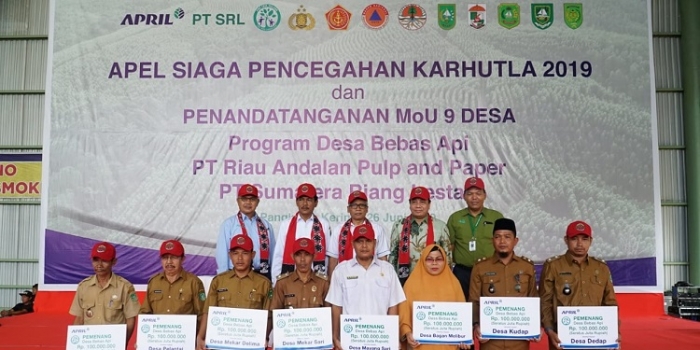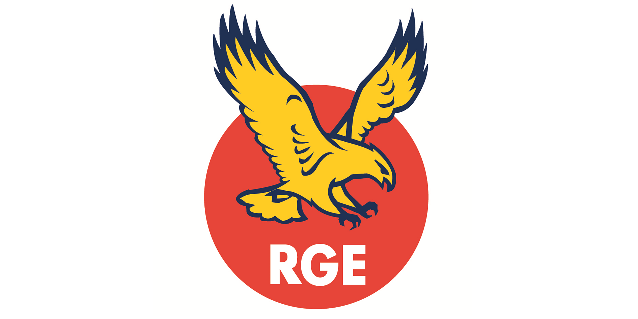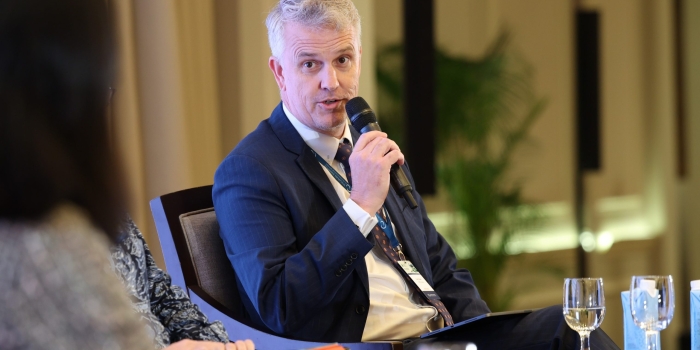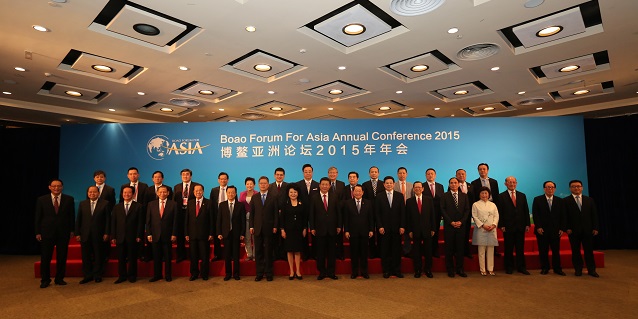At five years old, APRIL Group’s Fire Free Village Programme (FFVP) continues to show progress in fire prevention and managing fire-free landscapes.
Piloted in 2014 and launched in 2015, the FFVP is a multi-stakeholder fire prevention project in Riau, Indonesia, founded in close collaboration with local communities and in partnership with NGOs, the government, police, military and Riau’s Disaster Mitigation Agency, to address the underlying causes of fires through education and increase awareness of the negative impacts of burning. To date, the programme has engaged 77 communities spanning more than 622,000 hectares of land and reduced burnt areas by 90%.
Riau Andalan Pulp and Paper (PT. RAPP), the operating arm of APRIL Group, continues to onboard more villages into the programme. Last month, the company announced the signing of a Memorandum of Understanding with nine villages under PT. RAPP and a supply partner PT. Sumatera Riang Lestari (SRL), which has agreed to participate in the FFVP.
Fire-free Landscapes
The programme’s inaugural year (2014) saw burnt areas of 0.18% of the total area covered. Subsequently, the percentage burnt was significantly lowered in the years 2015 to 2017 (0.01%, 0.07% and 0.03% respectively). 2018’s figure stood at 0.02%. The achievement was made possible by 23 out of 27 participating villages having no fires.
PT. RAPP provided rewards to the nine villages who met the fire-free criteria in 2018. Each received IDR 100 million (about USD 7,000) to be used for the construction and improvement of village infrastructure.
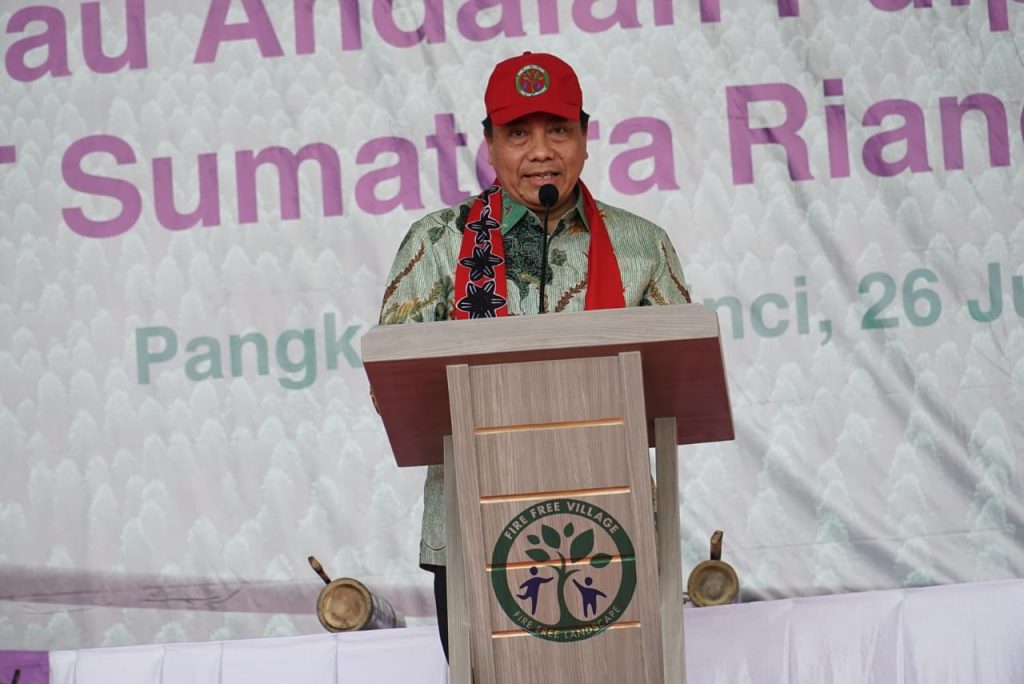
PT RAPP President Director Sihol Aritonang acknowledges the roles of the communities, government agencies, police, military and other stakeholders in fire prevention.
More on the FFVP: 3 Stages
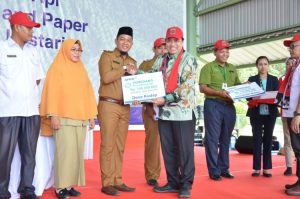
PT RAPP President Director Sihol Aritonang presides over the FFVP no-burn award ceremony.
The FFVP comprises three stages. Starting with the “Fire Aware Community” (FAC), the programme aims to build awareness through educating communities on fire prevention and health.
Built to comprehensively cultivate and safeguard the fire-free landscape, the second and cornerstone stage of the FFVP, the “Fire Free Village” (FFV) deploys a five-pronged approach that includes no-burn incentives for participating communities, the cultivation of community fire crew leaders, developing sustainable agricultural alternatives, air quality monitoring, and driving community awareness campaigns. All nine participating villages in this stage had no burnt area and received the full reward.
Ongoing engagement with communities is a critical component of the final stage, known as the “Fire Resilient Community” (FRC) stage. While FRC participant villages are no longer eligible for the cash equivalent rewards disbursed in the preceding stage, they will still be regularly engaged by APRIL on the deployment of fire prevention and management practices. In 2018, there were a total 18 graduate villages in the FRC programme.
Growing Support and Awareness
The FFVP has gained significant support and momentum, catalysing the formation of the Fire Free Alliance, a voluntary multi-stakeholder group made up of forestry and agriculture companies, with NGOs and other concerned partners keen to resolve Indonesia’s persistent fires and haze problems arising from land burning.
The fire-free message of the programme has been further extended to include the publication of 30,000 comic books aimed at awareness-raising among young readers. These were distributed as part of a national voluntary reading initiative.
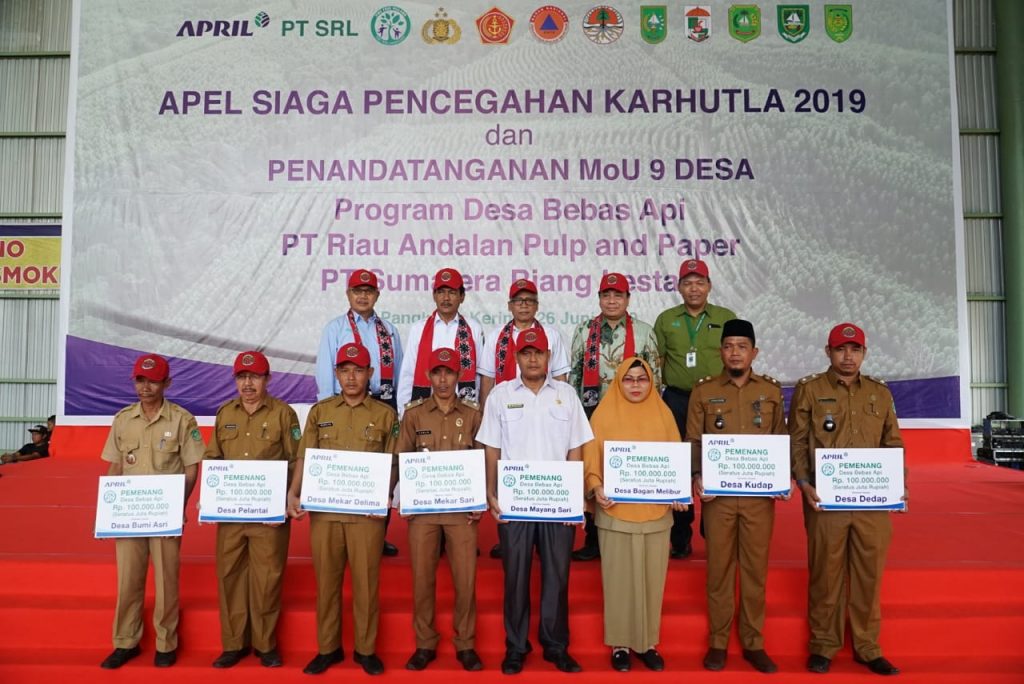
Recipients of the Fire Free Village Programme no-burn rewards stand proudly in unison as the community continues building a fire-free landscape.
The FFVP also clinched “The Best Sustainability in the Community” Award at the Sustainable Business Awards in Singapore 2018.
The 2018 achievements and milestones of the FFVP are documented on APRIL’s recently published 2018 Sustainability Report, which also contains details of other sustainable forest management practices by the company.



